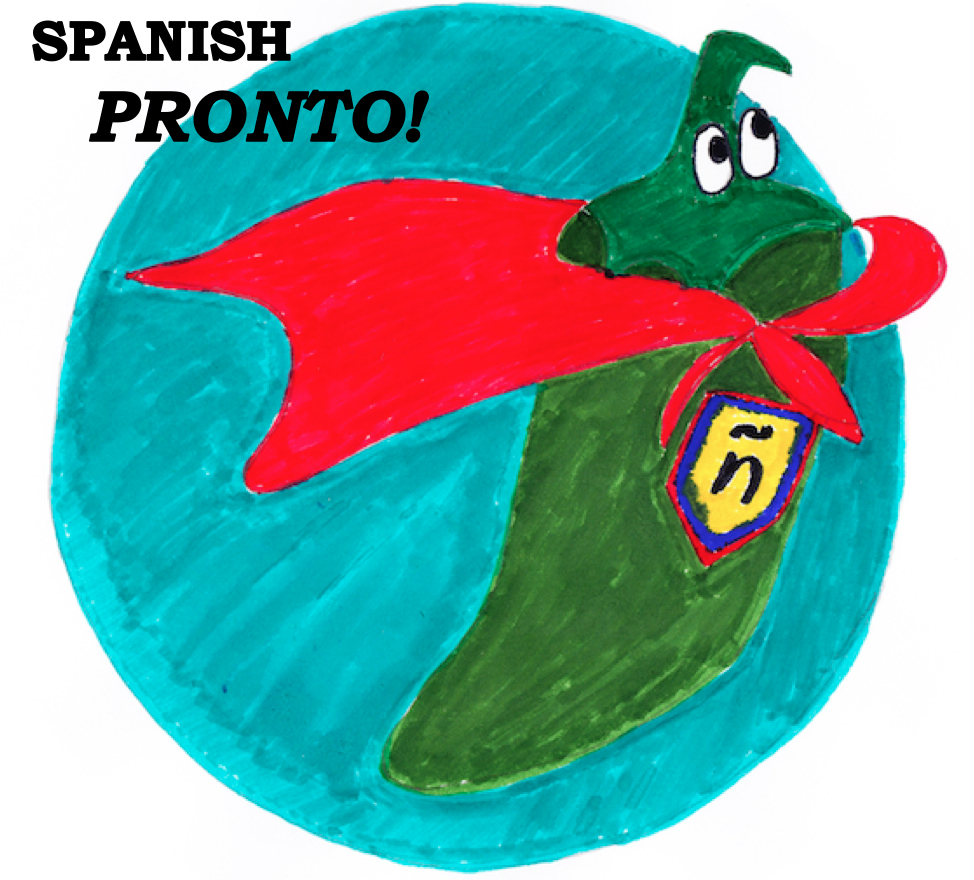
Spanish Vocabulary
Learn 10 Spanish words per day and know 2,500 words after one year!Many words in Spanish and English are similar, but similar words can have very different meanings, so be careful.
sido been ['essence' or 'process']; estado been ['stage' or 'result']fueron they were, you all(formal) were ['essence' or 'process'; perfected (completed) action in the past]; they went, you all(formal) went
eran they were, you all(formal) were ['essence' or 'process'; imperfect (uncompleted, continuing) action in the past: was being, used to be, habitually was]
estaba I was, he was, she was, it was, you(formal) were ['stage' or 'result'; imperfect (uncompleted, continuing) action in the past: was/were being, used to be, habitually was/were ]
decir to say, to tell
dice he says/tells, she says/tells, it says/tells, you(formal) say/tell
dijo he said/told, she said/told, it said/told, you(formal) said/told
dicho said; this/these, said, the aforementioned (dicho, dicha, dichos, dichas); m. saying
hizo he made/did, she made/did, it made/did, you(formal) made/did
hecho made; done (hecho, hecha, hechos, hechas); m. fact
Words pronunciation: 0:41 (41s)
'Sido,' 'fueron' and 'eran' are from the verb 'ser' ('to be'), which is used to describe the essence of something, or other times to describe a process.
'Estado' and 'estaba' are from the verb 'estar' (also 'to be'), which is used to describe a stage that something is at, or other times to describe a result.
In the imperfect past tenses, the conjugations for 'I' and for 'he/she/it/you(formal)' are the same, as is true of 'estaba.'
aun no ha sido posible it has not been possible yetúltimamente ha estado muy contenta lately she has been very happy
¿al fin fueron capturados? were they finally captured?
¿fueron al concierto? did you all go to the concert?
en esa época eran difíciles de conseguir in those days they were (used to be) hard to obtain
ayer estaba pensando yesterday I was thinking
no sé qué decir I don't know what to say
como dice el dicho: … like the saying says: …
¿qué dijo? ¿y luego qué hizo? what did he say? and then what did he do?
todos fueron hechos a mano they were all made by hand
Examples pronunciation: 0:41 (41s)
© 2017-2018 Chris Marquardt, Spanish Pronto
http://www.spanishpronto.com/vocabulary_0001.html
http://www.spanishpronto.com/vocabulary_0002.html
http://www.spanishpronto.com/vocabulary_0003.html
http://www.spanishpronto.com/vocabulary_0004.html
http://www.spanishpronto.com/vocabulary_0005.html
http://www.spanishpronto.com/vocabulary_0006.html
http://www.spanishpronto.com/vocabulary_0007.html
http://www.spanishpronto.com/vocabulary_0008.html
http://www.spanishpronto.com/vocabulary_0009.html
http://www.spanishpronto.com/vocabulary_0010.html
http://www.spanishpronto.com/vocabulary_0011.html
http://www.spanishpronto.com/vocabulary_0012.html
http://www.spanishpronto.com/vocabulary_0013.html
http://www.spanishpronto.com/vocabulary_0014.html
http://www.spanishpronto.com/vocabulary_0015.html
http://www.spanishpronto.com/vocabulary_0016.html
http://www.spanishpronto.com/vocabulary_0017.html
http://www.spanishpronto.com/vocabulary_0018.html
http://www.spanishpronto.com/vocabulary_0019.html
http://www.spanishpronto.com/vocabulary_0020.html
http://www.spanishpronto.com/vocabulary_0021.html
http://www.spanishpronto.com/vocabulary_0022.html
http://www.spanishpronto.com/vocabulary_0023.html
http://www.spanishpronto.com/vocabulary_0024.html
http://www.spanishpronto.com/vocabulary_0025.html
http://www.spanishpronto.com/vocabulary_0026.html
http://www.spanishpronto.com/vocabulary_0027.html
http://www.spanishpronto.com/vocabulary_0028.html
http://www.spanishpronto.com/vocabulary_0029.html
http://www.spanishpronto.com/vocabulary_0030.html
http://www.spanishpronto.com/vocabulary_0031.html
http://www.spanishpronto.com/vocabulary_0032.html
http://www.spanishpronto.com/vocabulary_0033.html
http://www.spanishpronto.com/vocabulary_0034.html
http://www.spanishpronto.com/vocabulary_0035.html
http://www.spanishpronto.com/vocabulary_0036.html
http://www.spanishpronto.com/vocabulary_0037.html
http://www.spanishpronto.com/vocabulary_0038.html
http://www.spanishpronto.com/vocabulary_0039.html
URL for this page: http://www.spanishpronto.com/vocabulary_0018.html